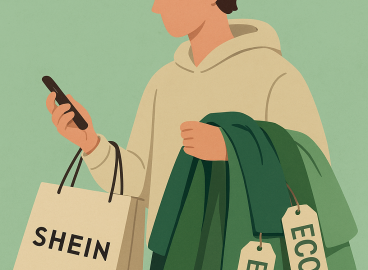Millions in fines – but do they matter?
Shein’s European branch has faced two big penalties: €1 million in Italy and €40 million in France. These fines raise a bigger question: how effective is the EU at tackling greenwashing and holding huge digital companies accountable across borders?
Italy’s competition and consumer authority (AGCM) fined Infinite Styles Services Co. Ltd, which runs Shein’s EU operations, €1 million. Regulators argued that Shein’s environmental claims on its website – under sections like SHEININTHEKNOW, evoluSHEIN and Social Responsibility – were “unclear,” “vague,” and in some cases “deceptive.”
In short: Shein used glossy, green-sounding language to suggest strong eco standards, but avoided details or proof. That’s classic greenwashing – marketing sustainability without actually practicing it. According to AGCM, this content had been online since at least early 2023.
But here’s the catch: under Italy’s consumer code, fines can go up to €10 million, and penalties must be proportionate to local turnover. Shein reported just €3 million in Italian revenue in 2023. So the sanction, while headline-grabbing, may be little more than a symbolic cost of doing business for a company with billions in global revenue.

